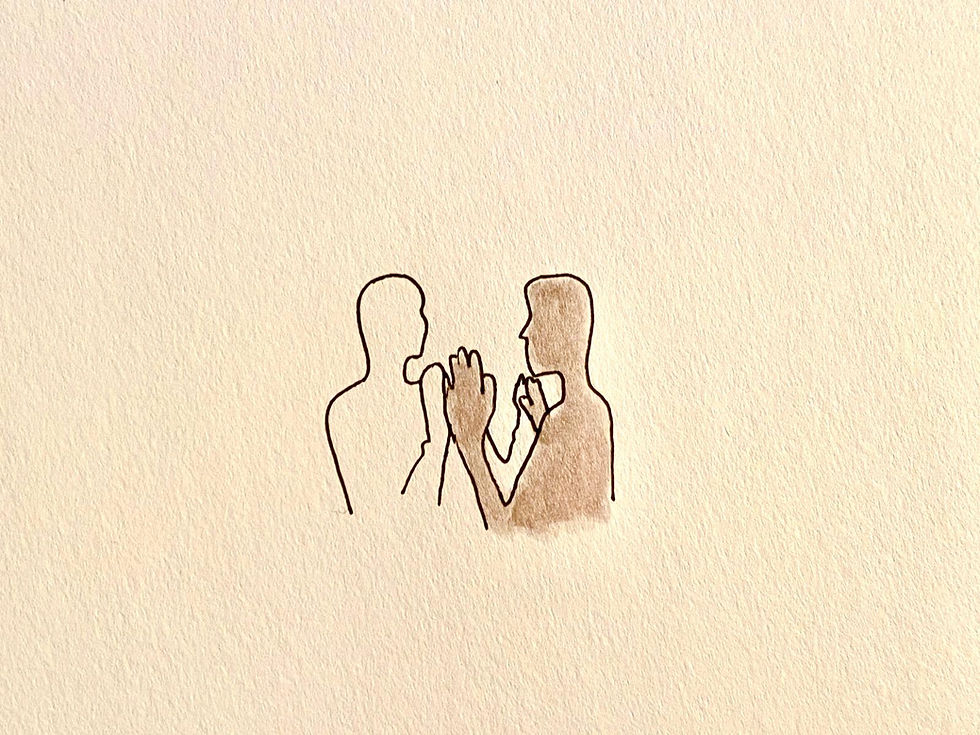Interview With Kristie Ko - Director of "Ateh"
- Sep 6, 2021
- 4 min read

At the 2021 Fresh Wave International Short Film Festival, the film “Ateh,” directed by Kristie Ko received a special mention and was awarded an audience award. “Ateh” (which means older sister in Tagalog) is about a Filipino domestic worker Janet, whose ward, Lum Lum, discovers her pregnancy, and is asked to keep it a secret. The story “is about a mother who has to decide between the child she has raised and her biological child” The film contemplates “how do you live with abandoning someone who you have raised and see as your own but will never be your own?”
Kristie’s Background in the Film Industry
Kristie was born and raised in Hong Kong, but studied film in the U.S at the University of Southern California. After working in television in LA and then London, she decided to return to Hong Kong to continue her career, focusing on stories closer to home. Nonetheless, as Kristie says, “A lot of people say HK cinema is dying, but I don’t think that is true because as long as there are people like me still here, it’s very much alive.”

Kristie’s Relation to the Migrant Domestic Worker Community in Hong Kong
The film is loosely based on her own experience as a child. Her auntie at the time was pregnant and had to return to the Philippines.
“I remember watching her belly grow bigger and bigger, but the most lasting memory for me was the day we brought her to the airport and sent her off. I didn’t understand that she was really leaving for good, and for someone as young as six, you don’t really know what farewell or goodbye means. “Ateh” itself is not about that one helper but it is a combination of the multiple aunties I’ve had in my life growing up - a combination of all these women’s stories.”
Kristie also recalls memories with her other auntie Cecile, who taught her to cook Cantonese dishes like tomato and egg, sweet and sour pork. “She was very strong and stoic, and I
took away a lot from that."
Behind the Scenes
Kristie and her team knew that casting a Filipina domestic worker would be a challenge. When they initially reached out, many locals would use derogatory terms like “bun muy'' (賓妺) to refer to the characters, or assume they would cast the star of the film “Still Human,'' since that was their only reference for Filipina talent in Hong Kong. Based on these reactions, it was clear just how much Hong Kong needs more of these stories. She hopes the film will shed a light on the incredible community of Filipino actors and filmmakers in Hong Kong.

A 1990’s Setting
The story is set in the late 90s, a time in which Kristie vividly recalls memories of growing up under her auntie’s care. She wanted to go back to a time before smartphones, an object ubiquitous in modern day yet so intrusive in human relationships. Observing how domestic workers and kids interact now, “I’m sure Gen Z can write an accurate story of that relationship but it wasn’t like that for me and I felt that I wouldn’t be able to accurately write it in the present day.” To make the setting accurate to the 90’s, she incorporated many seemingly insignificant details. For example, there is a scene when Lum Lum knocks on Janet’s door and asks “Can I play snake?” Kristie recounts “we would always try to take our auntie’s phones to play games on. I know Cecile was annoyed with me because she wanted to call her family, but she would always give in and say okay.”

Looking back, “I’ve always felt guilty for taking time away from her son. It’s a complex dilemma because she’s here to take care of us and work for us and she’s sacrificed all this time that she could be spending with her child, but the child is also the reason she’s working here. Which is why motherhood in the migrant domestic worker community is so relatable, because all mothers have to make sacrifices, but for this community it is especially large.”
The Relationship Between A Migrant Domestic Worker and A Child
The film highlights the innocence of Lum Lum and Janet’s relationship, before Lum Lum is old enough to really understand race and class and the boundaries that exist between an employer and an employee. In the film, Lum Lum isn’t completely aware of them and that’s why she so freely enters Janet’s space. The apartment is set up so that all of the spaces that are marked as Janet’s, the employer (Mrs. Chan) never really enters. Throughout the entire film, only Lum Lum is free and willing to enter them.

How Students Can Support Their Migrant Domestic Worker
The simplest thing to do is to have a conversation with your helper.
“That is the one thing I regret the most that I didn’t do more of.”
Just ask your helper about her day, but also ask her about her family - really get to know her! That is the first and easiest step.
“Every employer-employee relationship is different, but as a student, if you see that your auntie needs more support in terms of rest or doing certain tasks, that is something you can speak up about.”
“All I hope to say is thank you. This film is about gratitude and is dedicated to the two very strong women who raised me.”
Where You Can Watch The Film
“Ateh” will be available on channel ViuTV 99 from September 26 2021 to December 2021, on programme “ViuTV鮮浪潮。語2021”. It is episode 7 in Freshwave Film Festival shorts series.



Comments